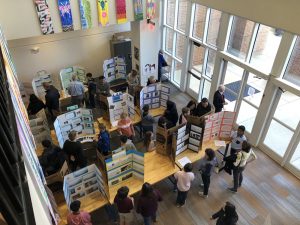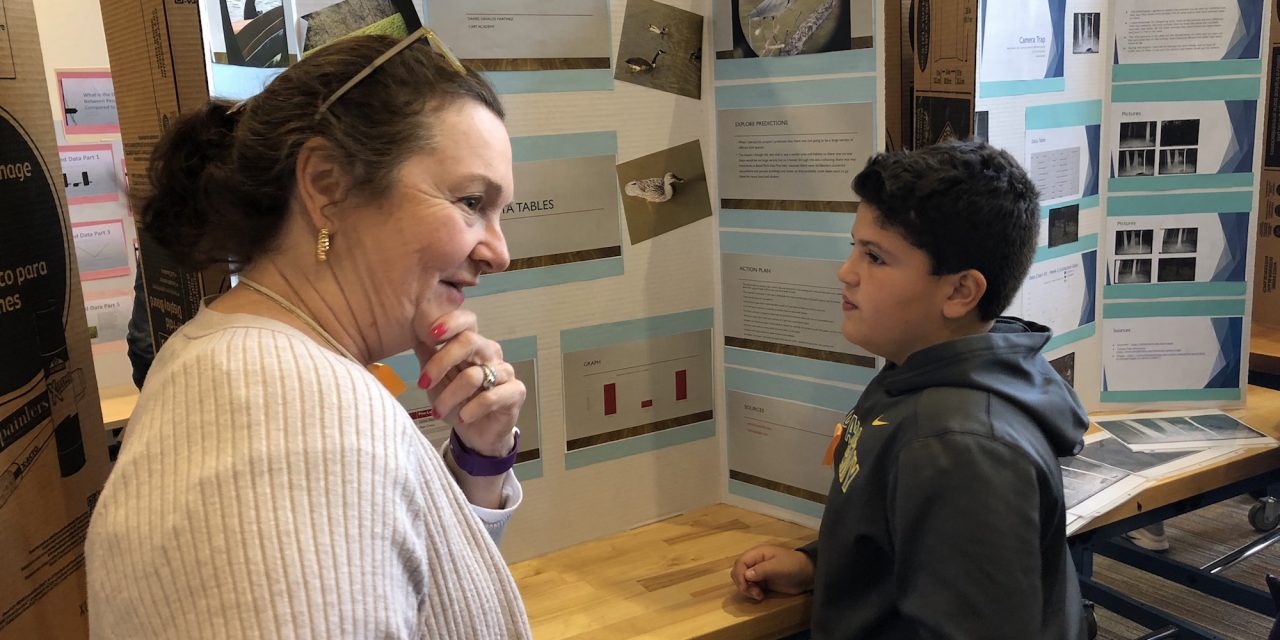While walking through the sixth-grade hall this week, I noted a quote on a wall from the great naturalist, John Muir: “Of all the paths you take in life, make sure a few of them are dirt.”
The quote reminded me of my conversations with various sixth grade students about the Citizen Science projects they presented on April 20. I typically asked students to tell me about their topic, what they loved about the project, what they learned, and whether the results of their research confirmed their original predictions.
 The fun part for me about this exchange was to observe the enthusiasm, ownership and confidence that each child conveyed when describing his/her work. On a programmatic level, these conversations confirmed that the Citizen Science project achieved its curricular goal of providing authentic engagement opportunities for students to make contributions to the scientific community. For middle schoolers, hand-on projects make the sciences come alive. It is also empowering for students to know that their research is shared with experts and can make a difference.
The fun part for me about this exchange was to observe the enthusiasm, ownership and confidence that each child conveyed when describing his/her work. On a programmatic level, these conversations confirmed that the Citizen Science project achieved its curricular goal of providing authentic engagement opportunities for students to make contributions to the scientific community. For middle schoolers, hand-on projects make the sciences come alive. It is also empowering for students to know that their research is shared with experts and can make a difference.
What surprised me most about the responses was the high number of students who shared that their favorite part of the project was being outside – because it was relaxing. (As part of their research, all 99 students were required to actively collect data in the out-of-doors for a three-week period.) Whether measuring light pollution (Globe at Night), counting litter in various locations (Litterati), setting camera traps (NC Candid Critter), counting birds (e-birds), or looking at cloud types (mPing), students consistently expressed a sense of relaxation while engaging in their research. I imagined that students would naturally enjoy being outside, but I didn’t anticipate this level of self- awareness.
These observations are valuable reminders about the power of being in nature and its impact on the learning process and the well-being of students. In a society where anxiety receives national attention, opportunities to take a walk, play in the dirt, or watch a flock of geese are increasingly important.

